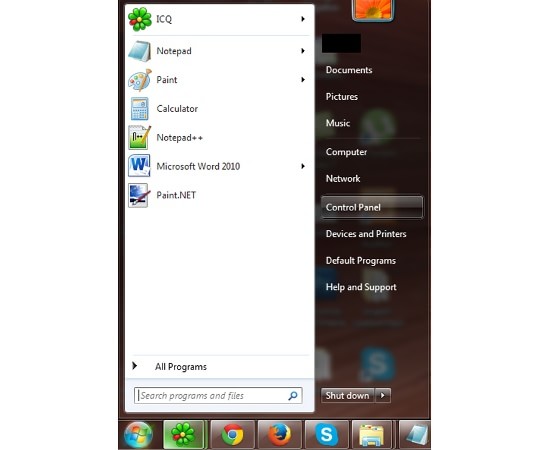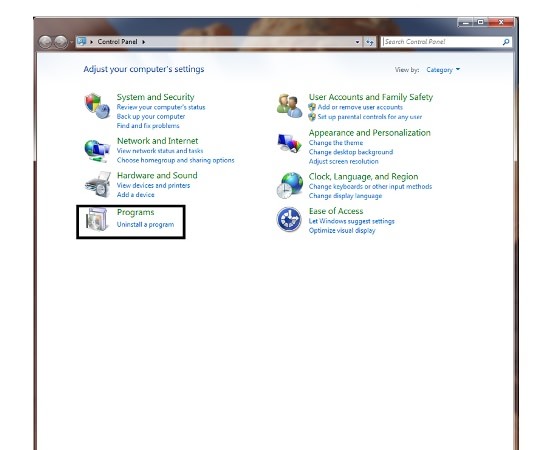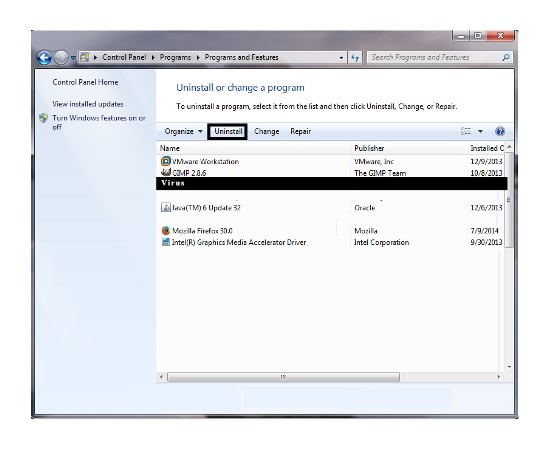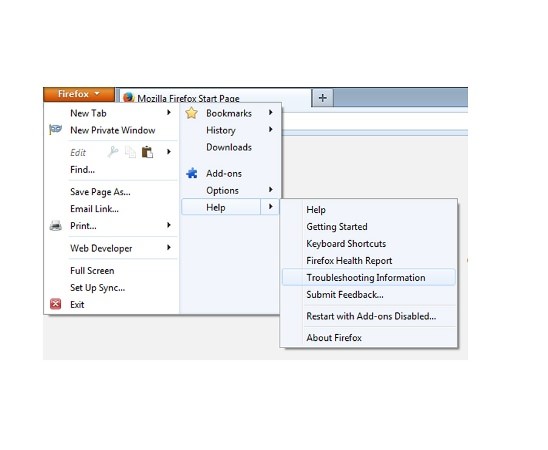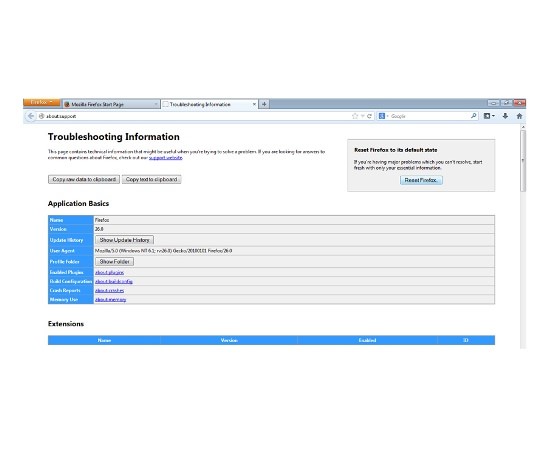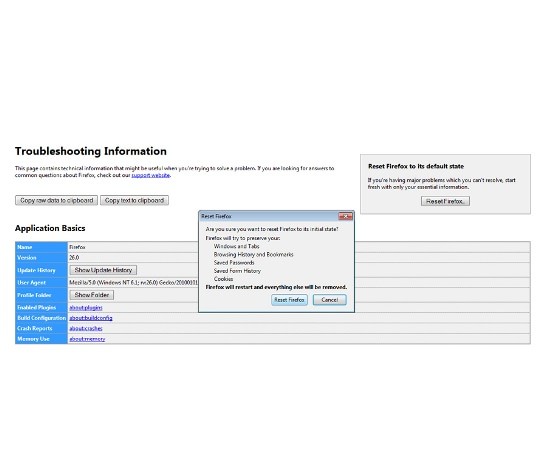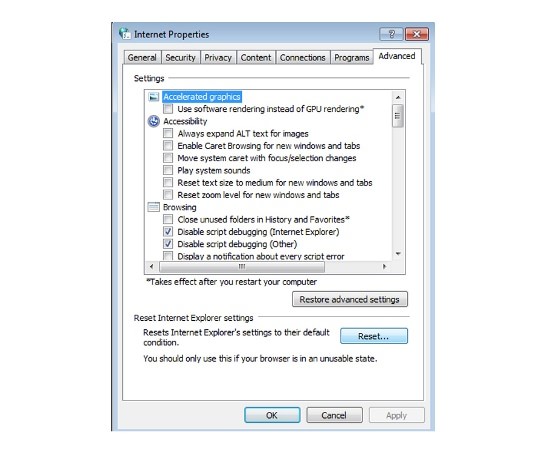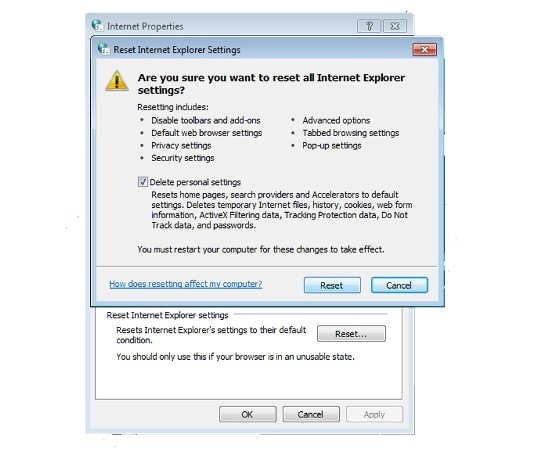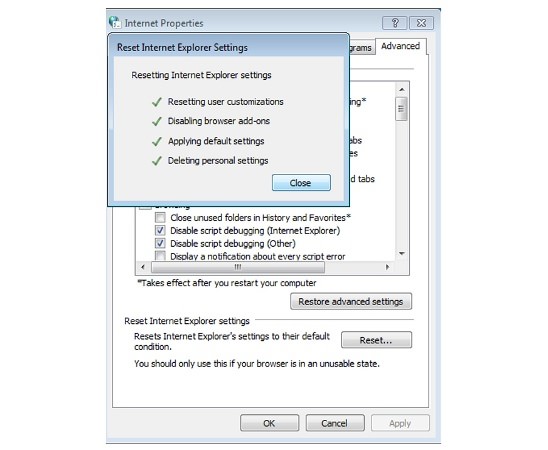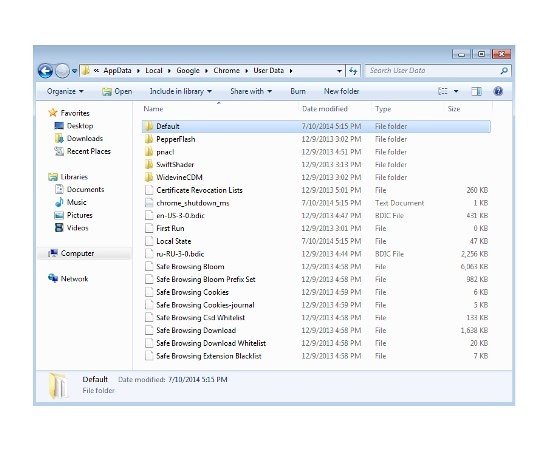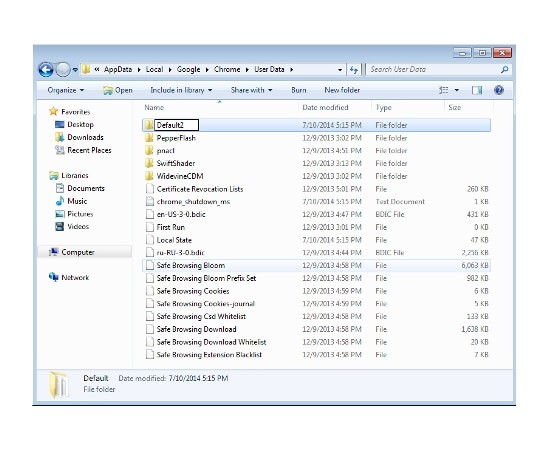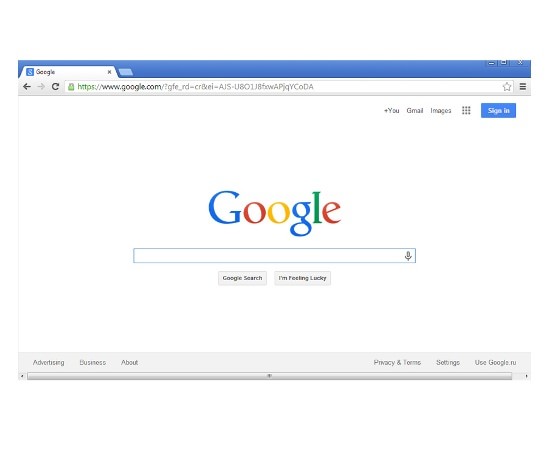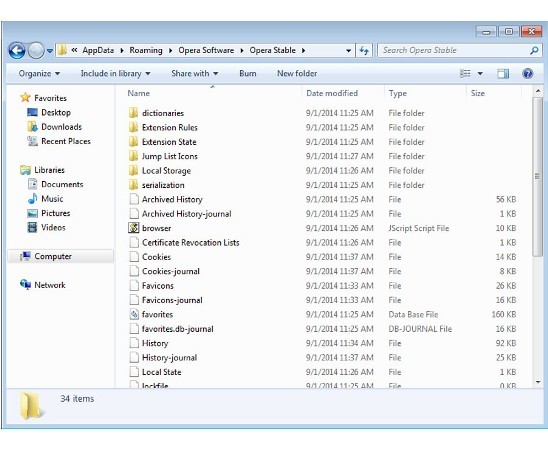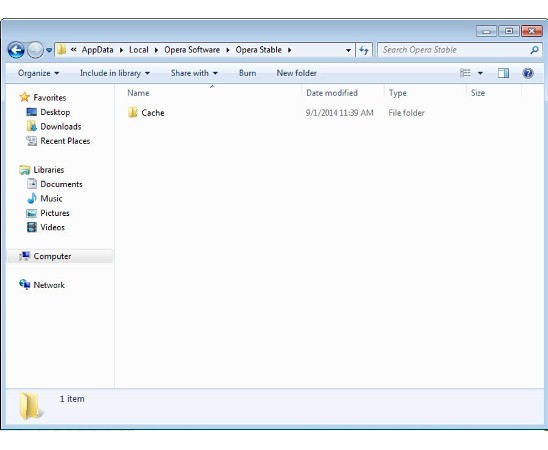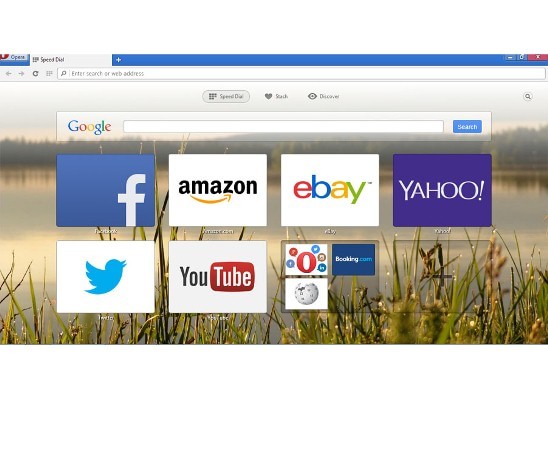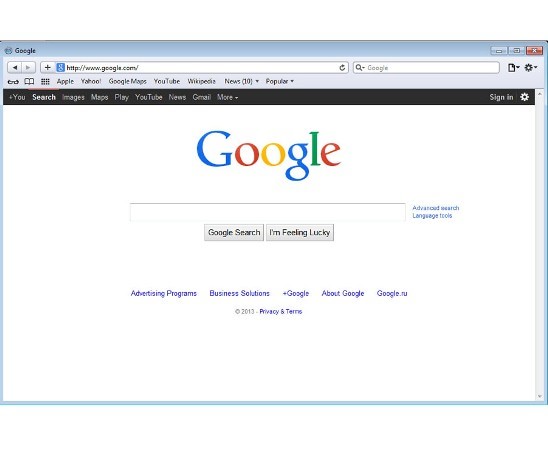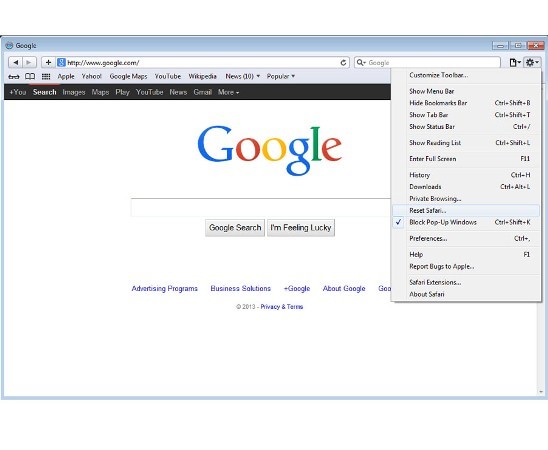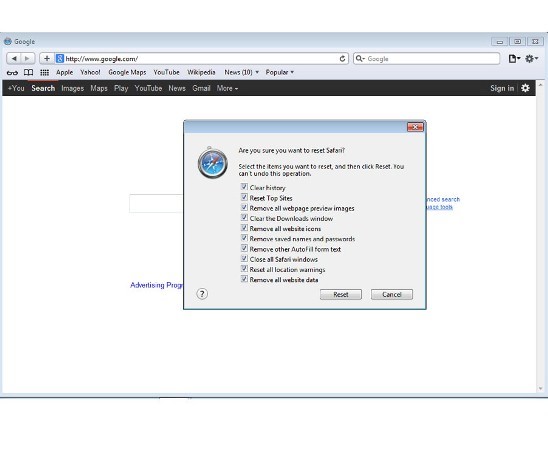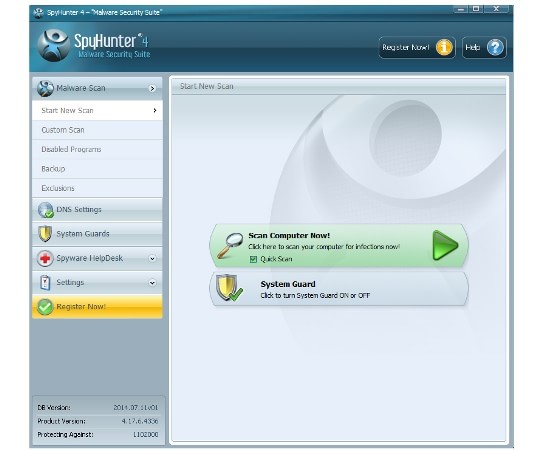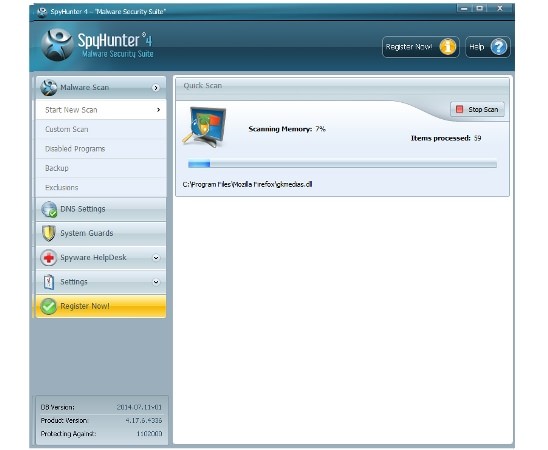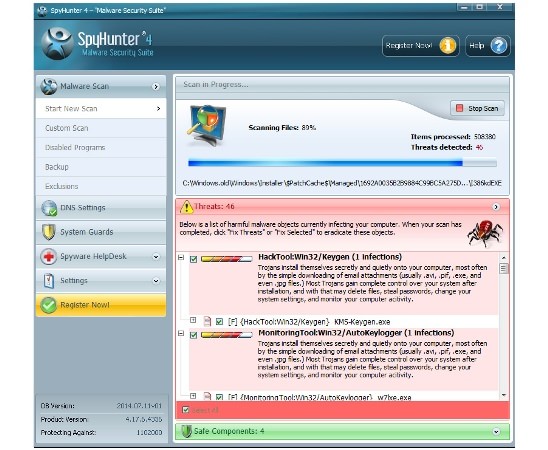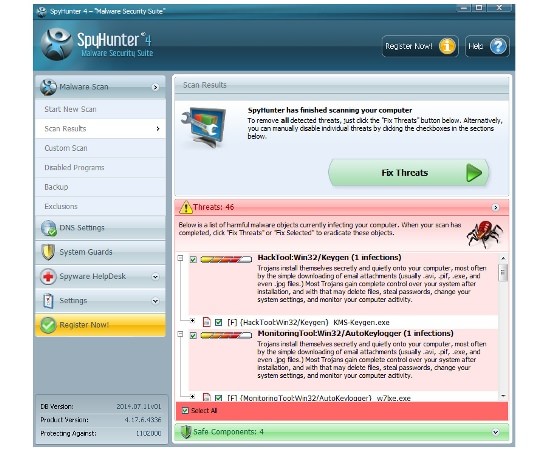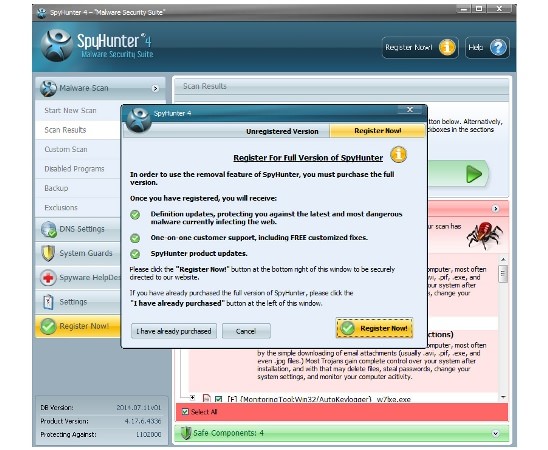DNSKeeper is a browser extension that can be helpful for those users who is eager to find some favourable shopping on the web. But such browser extensions irritate computer owners with the pop-ups like all bundled browser add-ons. If you did not install this extension or you repent that installed it, so you can examine this instructions fully and perform the removal instructions that will be useful to remove DNSKeeper. If you need the quick effective solution for its removal this adware, so you are welcome to use the handy software from this page.
Automatically Manually From browsers
Main options of SpyHunter:
- Eliminates all elements created by DNSKeeper.
- Is able to fix browser problems and protect browser settings.
- Has System and Network Guards, so you can forget about viruses.
What is DNSKeeper?
DNSKeeper is not malicious software for it is not able to infect other computers, but it can be installed with different free programs. It gives the impression that DNSKeeper is a virus.
But, actually, it is nothing but an nerve-racking browser extension that worries you with the help of promo information in the form of popping-up windows. Almost every user has undesirable browser add-ons like DNSKeeper and wants to delete it.
1. Install DNSKeeper Removal Tool:

Step 1. Left-click Start
Step 2. Choose Control Panel
Step 3. Find and highlight the annoying software and click Uninstall
![]()
Files:
- No information
![]()
DIRS:
- No information
![]()
Registry Entries:
- No information

Uninstall DNSKeeper from Firefox:
- Help=>Troubleshooting Information
- Reset Firefox
- Finish

Delete DNSKeeper from IE:
- Run inetcpl.cpl
- Advanced=>Reset
- Delete Personal Settings=>Reset=>Close

Remove DNSKeeper from Google Chrome:
- C:\Users\”your username”\AppData\Local\Google\Chrome\Application\User Data
- Rename Default folder to Default2
- Open Google Chrome
- Do not open Opera
- Remove Profile and Cache folders in:
- C:\Users\User_Name\AppData\Roaming\Opera Software\Opera Stable
- C:\Users\User_Name\AppData\Local\Opera Software\Opera Stable
- Open Opera
- Open your browser
- Settings->Reset Safari
- Reset
It does not matter what kind of add-on you are eager to install, it can be the weak point for the browser. DNSKeeper is not an exclusion. All browser vendors produce security patches and care about the safety of their users. But when you download any extension, then vendors cannot be sure that your computer will not be infected. Internet swindler can open the add-on like a pass to your computer. Of course there is a safe solution for this problem: install add-ons from well-known and reliable vendors only. But is not guaranteed guard from online delinquents and computer threats. It is far better not to install browser extensions at all.
You should know that every installed extension has the allowance to collect your personal info that you impart when complete a form on-line. These reports, including your phone number, your first and second names, electronic mail address, etc. Can be sold to some advertising agencies. Be careful using any browser add-ons and do not look for them, if there is not a real need in it.
DNSKeeper is a browser extension that adds some other dangers. Is there any guarantee that the advertising information is 100% real? Of course, no. So, you should not trust the ads and its conditions. Also you should not click the links of the shown pop-ups for they can be harmful and so, as consequence, you will get a true virus in your system.
| Damage Level |
Medium
PUP |
| Data Theft | 35% |
| System Failure | 0,0004% |
| Manual Removal | 18 |
| Removal From Browsers | 36,2% |
| Removal with Free Antivirus | 3% |
| Removal with SpyHunter | 96,3% |
| Infected computers (USA) | 0,004% |
| Infected computers (Europe) | 0,0003% |
| Browser Infection Probability | 53,5% |
DNSKeeper like all other adware programs has some principal symptoms that will help you to understand if your system is infected with it or not. Here is the list of them:
- Many block of ads shown by DNSKeeper
- Very sluggish PC
- Antivirus software finds some dangers
- Changes in your browser (toolbars, homepage, search engine)
- Search results are hijacked
- Presence of DNSKeeper files, DIRS and registry entries
Manual and Automatic Removal Methods?
Manual ways of removal that you can execute to delete DNSKeeper from browsers are not dangerous and not so difficult as you might think. Possibly, only automatic method is easier. This method is very efficacious as the browser vendors care about your right to add or remove any browser add-ons. The way of removal will give you a chance to uninstall all the undesired browser extensions and you will not be displayed its pop-ups any more. But sometimes, using this technique users are surprised that the adware is installed again in the browser and they need to perform any other methods to remove it.
But there is one more manual removal instruction following which you should remove files, folders and registry entries. The described way of removal is secure if you can execute it carefully or commit it to the experienced person who knows what and why should be deleted. In order to make this process safer you should create the backup of the registry. Do not forget that only the enumerated parts of the software should be deleted and no one more otherwise your system will not load. If you do not understand what registry value is and where it should be, then you are welcome to use automatic technique not to harm the PC.
However the most powerful and the most secure method is automatic. Using any antivirus tool that includes DNSKeeper in its signatures, you will remove this undesired program faster and the add-on will not irritate you any more as the antivirus will defend your computer in future.
Concerning the money that users may pay for the removal of the virus I should say that some removal techniques are 100% free, for example manual removal from browsers, manual professional removal (if you will do it by yourselves), free antivirus program and the removal from Control Panel. But not all of them are powerful. The information about the effectiveness of these uninstall techniques I describe in the table that is called ‘Removal methods statistics’ below. Speaking about the paid techniques of virus removal, I should mention the Computer Repair Shop Service and paid Antivirus program.
These methods are the most effective. In spite of the great inequality in the price (Repair Shop service depends on the complexity of the issue and may cost up to $300, but paid antivirus costs up to $60) these methods are almost equal in the effectiveness and in the results. I should also notice that paid antiviruses always has support service (sometimes for free) that will solve your problem like in an expensive computer repair shop.
Removal methods statistics
| Removal method | Price | Effectiveness | Safety | Needed Time |
| Computer Repair Shop | $130-$220 | +++ | +++ | up to 4 days |
| Paid Antivirus | $25-50 | +++ | +++ | up to 1 hour |
| Free Antivirus |
$0 | +/- | +/- | up to 3 hours |
| From Control Panel | $0 | +/- | ++ | up to 1 hour |
| Manual Removal (Professional) | $0 | + | – | up to 4 Hours |
| Removal from browsers | $0 | +/- | +/- | up to 1 hour |
Are you seeking for the tool that will delete DNSKeeper absolutely? Then I want to recommend you SpyHunter because it is the best DNSKeeper Removal Tool and even more. This software detects and removes all undesirable browser add-ons and, moreover, will keep your computer without viruses, deleting all current computer infections.
SpyHunter is a program created by Enigma Software. It implements antispyware and antimalware characteristics, so then there are no computer infections that cannot be removed with its help. SpyHunter has a regularly updated virus base that guards your computer from various everyday viral programs.
Then fresh version of SpyHunter not only vary its interface to more handy and fine, yet the program does not conflict with other antivirus tools that you can have. Also this program works faster and protects better.
SpyHunter gives real-time protection, has Integrated SpyHunter Compact OS that let to remove the most stubborn viruses and the reliable live technical support. SpyHunter is compatible with Windows 98/ME/NT/2000/XP/2003/Vista/Seven/8, it needs 256 MB of RAM, 75 MB of available hard disk space.
How to use SpyHunter
First of all you should download SpyHunter in your system. You are welcome to use the download link from this page. Then you should install SpyHunter like every antivirus software. I should say that the antivirus tool can be installed easily and it is intelligible for many foreign users owing to the wide range of languages that you are welcome to set. This fact makes SpyHunter almost indisputable leader among all other world antimalware programs.
When installed the software should be updated, usually this action should begin by itself, but if not, so you can do it. When the update is installed, you should start a Scan. You are welcome to delete the tick in the Quick Scan check box, if you want to scan your computer entirely. But ordinarily Quick scan is enough to determine all possible viruses and this function save your time and effort.
When the scan is finished it is better to examine the results and delete the ticks near the helpful programs that Shyhunter detect as malicious or unwanted utilities. Then you can click Fix Threats. If you have already bought the license key, then the computer threats will be removed. If you did not, then you will have a chance to pay for the license key.
This page describes several methods to remove DNSKeeper, I hope, they helped you and the unwanted program for browser is deleted. Still your PC can be infected every day and so it needs protection. I advise you to download an antimalware tool that will guard your PC every day and will help you to the computer at least one time a week The downloaded antivirus utility should have a extensive virus database and regular releases of updates. The best antivirus tools has real-time protection. It is the protection that can detect computer threats in the system when it is just trying to infect your PC.
SpyHunter conforms to all the itemized demands. So, I believe it is able to guard your PC better than any other and yet it can give a real-time bar to all the zero-day viruses. The mentioned easy-to-use program will perform a scan for you. It will disclose all the viruses and even all the probably undesirable software. If you installed any functional utility for your work, but SpyHunter reveals it as the unwanted software, but you are 100% certain that the program cannot be a virus, so you can refer it to Exclusions and SpyHunter will not delete it and never will detect it as a computer threat again. If you need to scan just single file, so you are welcome to select Custom Scan feature. You are welcome also employ Process Guard or Registry Guard of the program for your comfort.
I also want to advice you some helpful actions that will protect your laptop from DNSKeeper and other malicious objects in the future:
- Do not download any free programs from unknown creators. If you do not want to pay for applications, then you should be very attentive during the installation of this application. You should not overlook the checkbox (usually small letters) that is responsible for the installation of any other free programs. You should uncheck this checkbox.
- Do not open any dangerous websites (porn, for adults, websites of unknown free software), they usually contain some trojans or other kinds of viruses.
- Do not use torrents or other sharing web services, because you can download virus instead of the wanted file.
- Do not open file send per email from unknown users. It can be malicious.
- Install any antivirus software and scan your PC at least once a week.
Video Instructions to remove DNSKeeper
About Author: Material provided by: Alesya Orlova



 Download SpyHunter right here
Download SpyHunter right here 